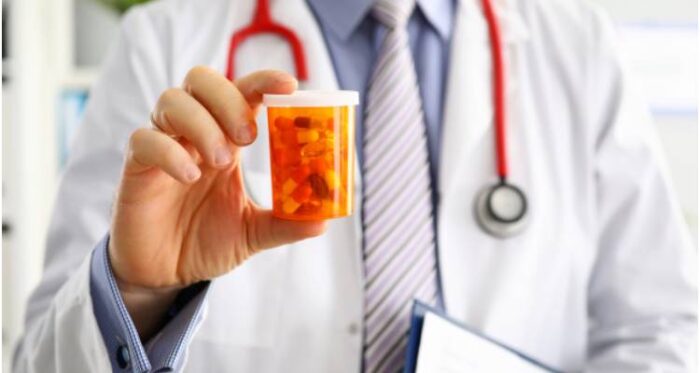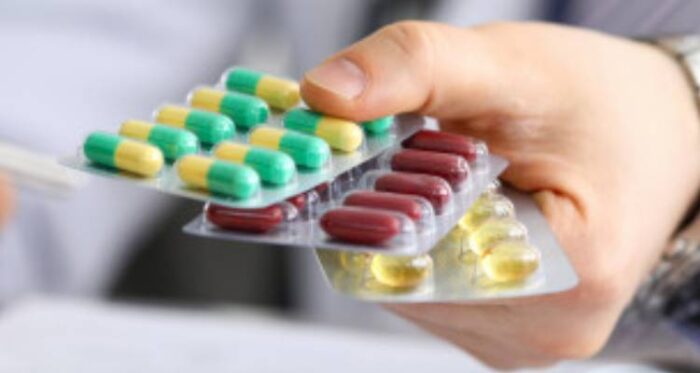Why my antidepressants not working properly? For certain individuals, seeking the best medication for depression is a phase of trial and error. “The most extensive study examining the effectiveness of antidepressants.
The star D report found that after attempting one antidepressant only 37 percent of people experienced relief from depression known as remission],” says Joseph Hallett, MD, senior medical officer, Optum Health Therapeutic Solutions in Minnesota. “And even after four treatments for depression, only 67% of people were remitted.”
My antidepressants not working
The odds will start to stack you a little while you follow the right depression drug. Check for these nine indicators to increase the chances of finding the therapy which fits better for you the antidepressant doesn’t work, doesn’t work well enough, or doesn’t function as it should:
Signs your antidepressants aren’t working

In this mod epoch where everyone is stuck in a stressful life, usage of antidepressants became a trend. Brain chemicals known as neurotransmitters can be changed artificially by antidepressants to decrease stress and depression.
Statistics show that by the intake of one antidepressant, 37% of people got relief while remission was observed in 67% population after four different depression therapies by antidepressants.
Your antidepressants aren’t working, if lack of quality sleep
One of the Signs of Antidepressants not working most antidepressants have been taken for a night of sound sleep, but if you cannot sleep comfortably, why are you taking that useless antidepressant. Through it away and try an alternative.
Brisk response to an antidepressant
Your antidepressant is not working If you feel relaxed right after intake of your antidepressant, don’t be cheery because it is not a good sign at all.
A function of antidepressants is to enhance good chemicals in the brain such as serotonin, norepinephrine, and dopamine, and this whole phenomenon takes 2-12 weeks. If you feel relief very quickly, then it is a sign your antidepressant isn’t working properly.
You have missed your Dose
Your Antidepressants Don’t work If you have skipped your antidepressant for one day or more, then it will become less functional against depression.
Not so effective even after a few months
Improvements have been observed within three months after starting the treatment, but if you are not being treated within these months, it is time to try another antidepressant.
Causing energy efflux
Antidepressants are not energy boosters at all. If you feel energetic after taking a dose but still cannot combat depression, it is a sign that your antidepressant is not working in the right manner. This condition may lead to suicidal attempts.
Development of resistance
There may be the development of tolerance in the body if you are using an antidepressant for a long period, so when you feel that the effectiveness of your antidepressant has been declined, talk to your doctor for the increment of dosage.
You are inclined towards the worst condition:
It is common when any medicine doesn’t work properly; no one can be recovered; the same is the case with antidepressants. If mood swings such as you are depressed one time and feeling relaxed another time occurs, then your antidepressant is not working efficiently.
Lack of powerful results
You feel well after trying any antidepressant, but the results are not as powerful as you expect, so it’s time to quit on your antidepressant.
It is recommended to add many other depression treatments such as yoga, cardio exercises, and other psychotherapies with an antidepressant, enhancing an antidepressant.
Intense mood swings
The main function of an antidepressant is to maintain your mood swings. Mood swings may be because of many other factors.
One of them is the use of non-functional antidepressants when you feel exhausted every time; even after using antidepressants, it is time to change this medication because it is not doing its job fairly.
How to switch on another antidepressant?

It is not your job to change your antidepressant; consult with your doctor for an alternative. When you suddenly stop the medication, it will cause negative side effects.
Your doctor will suggest either you should stop the medication or change the dosage. Psychiatrists may suggest a high dosage of antidepressants, so follow prescriptions by your psychiatrist.
What do you do when antidepressants don’t work?
You should take some steps when your antidepressant doesn’t work.
Talk to your Psychiatrist

When your antidepressant doesn’t work, you should talk to your doctor about changing the dose or timing of the recent antidepressant because it may work more efficiently when you take high potency antidepressant, it may work more efficiently.
When the signs of depression go for more than a couple of days, it’s time to see a doctor. However, even though the medication doesn’t function, it’s necessary to keep taking it before your doctor suggests otherwise.
A dose increase or a slow tapering off phase can be needed. For many antidepressants, the Lack of their usage will trigger withdrawal symptoms too easily, for example:
- headedness
- Nausea
- diarrhea or atrophy
- More fear
- Suicidal thinking
Early warning indicators of depression are the effects you normally feel when there is an episode of depression, Neustadt notes. The symptoms of depression differ between individuals, but the indicators include:
- Poor mood
- Sleep or appetite shifts
- Reduced socialization
- Loss of confidence in fun events
Don’t worry; changing the dosage or going to another antidepressant will always fix the issue if the symptoms come back. There was a mistake (Note: If you have self-harm or suicidal thoughts, see your doctor immediately, call 911 or go to an emergency room.)
Go for an alternative

When your current antidepressant is not as functional as you expect, then switch on to another medication and get good results. Medicines for depression include:
Selective Serotonin Reuptake Inhibitors
SSRIs are the most effective medications prescribed, and sometimes the first line of protection against depression. They raise the brain’s neurotransmitter level (chemically named serotonin that moves signals from a brain cell to a brain cell).
This neurotransmitter is related to pleasure and material. SSRI side effects appear to be minimal, and signs of depression dramatically increase in around 60% of patients with moderate to extreme depression.
Selective serotonin inhibitors of noradrenaline reuptake
Both SSNRI and SSRI therapies influence serotonin levels, but SSNRI antidepressants often alter norepinephrine levels, which may be mood-affected by other neurotransmitters.
This drug is beneficial for people who have severe depressive exhaustion or who have experienced adverse effects or poor responses to SSRI medicines.
Antidepressants Tricyclic
TCA medications boost brain serotonin and norepinephrine but still block acetylcholine, a neurotransmitter related to elevated tension, anxiety, and depression compared to other antidepressant forms.
Many side effects than with SSRI or SSNRI medicines may be experienced with TCA medicines.
Inhibitors of monoamine oxidase
MAOI medicines block dopamine, norepinephrine, and serotonin breakdown, raising their brain concentration. Depression and anxiety are correlated with reduced levels of these neurotransmitters.
The amount of severe side effects of MAOI medications is higher. People taking them must be conscious of the associations between the medications and some foods and medicines.
Bupropion
Bupropion acts on both norepinephrine and dopamine. Its biggest benefit is that it produces no bad side effects such as diminished libido and weight gain as most antidepressants. However, depression and fear characteristics can be less helpful.
Esketamine
This newer medication promises relief from signs of depression within hours by growing glutamate levels, the most popular brain neurotransmitter.
Esketamine is contained in a nasal spray and has to be delivered in a clinic since it can induce hallucinations and other visual side effects over a duration lasting up to two hours. For those that have not reacted to other antidepressants, this is an important medication.
If you have serious depression, it is necessary to see your psychiatrist to help you feel comfortable again. “It’s not unusual for medications to stop working,” says Neustadt.
“This sometimes exists in the case of some kinds of medical procedures. Often the blood pressure drug needs to be adjusted and is no longer successful.
Add on other therapies
Medicine can make you physically or mentally healthy. Your body requires many other therapies, so add different exercises like aerobic exercises, including jogging, swimming, gardening, cycling, walking, and dancing.
These exercises are helpful to reduce depression and improve mental health by relaxing your mind. Find a therapist for more therapies that are good for mental health.
Stop Smoking and drinking alcohol
When taking antidepressants, then immediately quit smoking and drinking alcohol because their compounds may interact with antidepressants and hinder their function.
What are the most powerful antidepressants?
Escitalopram
One of the effective antidepressants is escitalopram, which belongs to selective serotonin reuptake inhibitors (SSRIs), and it is effective for unbalanced brain chemicals. This drug is used to eradicate anxiety and depression in adults.
Paroxetine
It is another drug that belongs to SSRIs and is also effective against stress.
Sertraline
This drug is useful for depression, obsessive-compulsive disorder, panic disorder and social anxiety disorder, post-traumatic stress disorder (PTSD), and premenstrual dysphoric disorder (PMDD).
How long does it take for your body to adjust to antidepressants?
Our body takes about 4 to 6 weeks to adjust to any antidepressant and takes several months for good results. But if your antidepressant is taking 6-8 weeks, it means it is not working, and you need to change the medicine or adjust the dosage of the antidepressant.
READ THIS NEXT
[Read What Happens if I Don’t Brush My Teeth]
[Read How to Make Yourself Vomit Without it Hurting in 2021]
[Read How to Grow Beard on Cheeks Faster Naturally ]
[Read Pain in left arm and chest | Causes, Symptoms ]

Comments are closed.